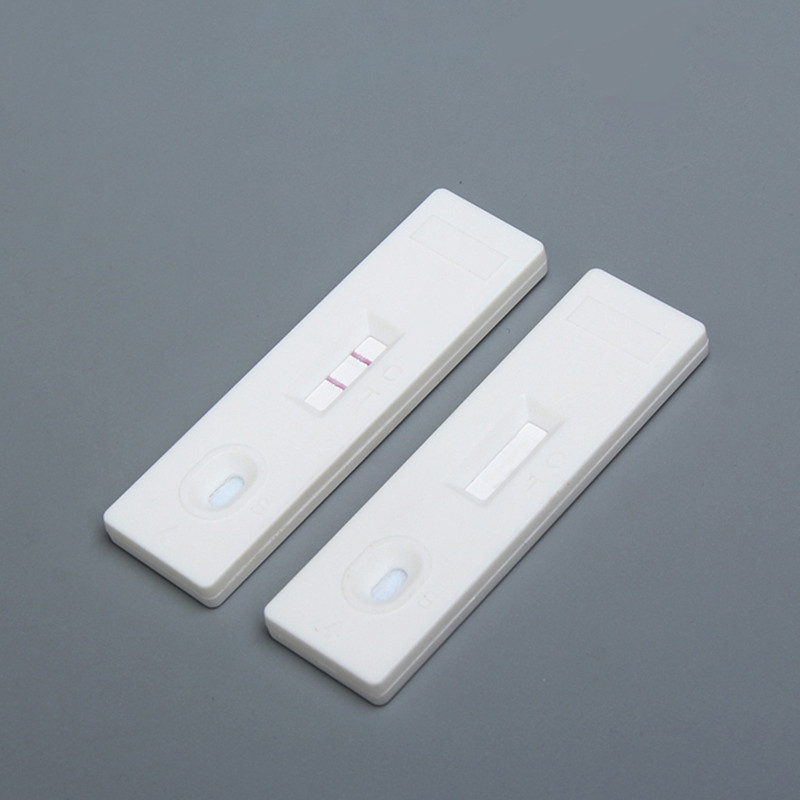nov . 22, 2024 16:20 Back to list
malaria antigen test factories
The Role of Malaria Antigen Test Factories in Combating Malaria
Malaria remains a significant public health challenge in many parts of the world, particularly in sub-Saharan Africa, Southeast Asia, and parts of South America. With an estimated 241 million cases worldwide in 2020, the need for effective diagnostic tools to detect and treat malaria has never been more pressing. One of the crucial advancements in the fight against this deadly disease is the development and production of malaria antigen tests. These tests play a vital role in the early diagnosis of malaria and aid in effective treatment, reducing morbidity and mortality rates. This article discusses the importance of malaria antigen test factories and their contribution to global health.
Understanding Malaria Antigen Tests
Malaria antigen tests are rapid diagnostic tests (RDTs) that detect specific antigens produced by the malaria parasites in a patient’s blood. These tests are advantageous because they are easy to use, require only minimal training, and provide results within minutes. They are particularly valuable in rural and remote areas where access to laboratory facilities may be limited. The most common antigens targeted by these tests include histidine-rich protein 2 (HRP-2) and Plasmodium lactate dehydrogenase (pLDH). The ability to detect these antigens rapidly allows for timely diagnosis and treatment, crucial in preventing severe illness and death from malaria.
The Importance of Factories
Malaria antigen test factories are specialized facilities dedicated to the production of these diagnostic tests. Establishing such factories is essential for several reasons. Firstly, they provide a steady and reliable supply of tests, ensuring that healthcare systems can respond effectively to outbreaks. With an increasing demand for malaria diagnoses, particularly during peak transmission seasons, these factories can scale production to meet needs.
Secondly, local production of malaria antigen tests can lead to significant cost savings. Importing diagnostic tests can be prohibitively expensive, especially for countries with limited healthcare budgets. By producing tests locally, countries can reduce costs, enhance accessibility, and improve the sustainability of malaria control programs.
malaria antigen test factories

Furthermore, local factories can contribute to job creation and economic development. The establishment of these manufacturing facilities not only provides employment opportunities but also promotes skills development in the local workforce. Training technicians and healthcare workers in manufacturing processes further strengthens the capacity of nations to combat malaria as part of a broader public health strategy.
Quality Control and Regulatory Standards
One of the critical challenges in producing malaria antigen tests is ensuring their quality and efficacy. Factories must adhere to stringent international regulatory standards, including those set by the World Health Organization (WHO) and other health authorities. Quality control processes must be in place to ensure that the tests produced are reliable and accurate. Regular evaluations, both intralaboratory and interlaboratory, can help maintain the integrity of the products.
The Global Perspective
While significant strides have been made in the production of malaria antigen tests, there remains a need for a coordinated global response to ensure that these tests are accessible in endemic regions. Partnerships between governments, non-governmental organizations, and private sectors can facilitate the establishment of more manufacturing facilities in malaria-prone areas. Additionally, initiatives to support research and development can lead to innovations in test technology, improving sensitivity, specificity, and ease of use.
Conclusion
As the battle against malaria continues, malaria antigen test factories stand out as a critical component of the global health response. By ensuring the availability of accurate, rapid diagnostics, these factories enhance the capacity to detect and treat malaria effectively. Through local production, not only do we address the immediate needs for testing, but we also contribute to long-term sustainability in healthcare. To achieve the ultimate goal of eradicating malaria, it is essential to continue supporting the establishment and development of malaria antigen test factories, ensuring that regions most affected by this disease have the tools needed to combat it successfully. The journey towards a malaria-free world may be challenging, but with innovations in testing and a commitment to equitable healthcare, it is within reach.
-
Highly Accurate hCG Pregnancy Test Strips - 5 Min Results
NewsAug.02,2025
-
Premium Empty ABS Plastic Cassettes: Durable & Lightweight Storage
NewsAug.01,2025
-
Accurate Cocaine (Coc) Rapid Test Kit | Fast & Reliable Detection
NewsJul.31,2025
-
Accurate HCG Pregnancy Test Strips | Fast Home Use Kit
NewsJul.31,2025
-
Reliable Early Pregnancy Test Kit Supplier - Multi Plastic Cassette Options
NewsJul.30,2025
-
Transferrin Rapid Test Cassette – Reliable Tumor Marker Detection
NewsJul.29,2025

